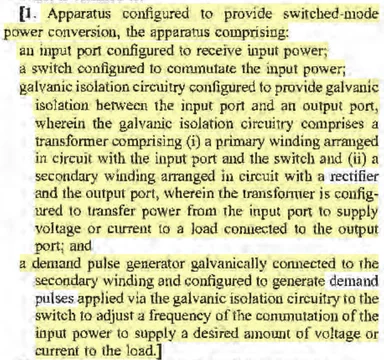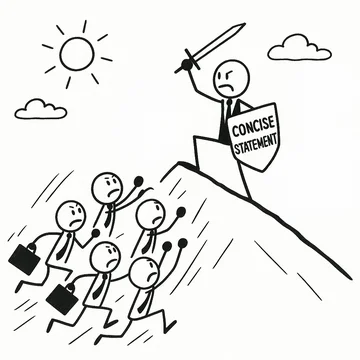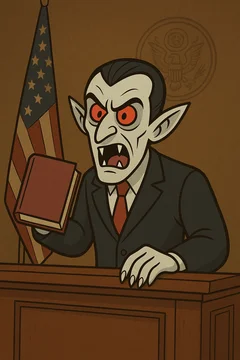
It's common for parties to not dispute the presence of some portions of a patent claim in an accused product. For example, in a patent for a "computing device" with software meeting certain limitations, the defendant may not dispute that the presence of a "computing device"—but might vigorously dispute that the software it runs meets the remaining claim limitations.
In most patent cases, the presence of at least some portion of the claim limitations in the accused product is not disputed—and often, quite a few limitations are not disputed. But the parties regularly go to trial on these elements anyway, with the defendant seeking to at least "hold the other side to their proofs."
That may sound like a defendant is just wasting everyone's time, but it can be important. The plaintiff might not be able to prove the existence of a claim element. Or, the plaintiff might dispute the presence of that same element in the prior art, and the defendant might want the jury to see how the plaintiff applies the limitation to the accused products.
Patentees have sometimes tried to move for summary judgment of infringement of these kinds of undisputed elements. This may seem like low-hanging fruit that could help simplify the patentee's trial presentation. After all, it would sound great to say that "The Court has already held that the accused device meets elements x, y, and z. . . ."
The Court, however, has sometimes pushed back on this practice. Yesterday, Judge Hall issued a short memorandum order in Cognipower LLC v. Fantasia Trading LLC, C.A. No. 19-2293-JLH-SRF (D. Del.) on a motion for summary judgment that asked the Court to hold that various individual claim elements—but no entire claims—were met by the accused products:
. . . Plaintiff asks the Court to grant partial summary judgment that all but three claim limitations in the asserted claims are met by the accused products; . . . Plaintiff argues that Defendants’ . . . expert . . . only “challenged” three claim limitations;. . . Plaintiff does not argue that all the limitations are met for at least one asserted patent claim . . . .
Cognipower LLC v. Fantasia Trading LLC, C.A. No. 19-2293-JLH-SRF, at 1 (D. Del. Aug. 5, 2025).
Judge Hall noted that it is not her practice to grant summary judgment on individual claim elements—and that it would be inconsistent with FRCP 56 (the rule on summary judgment):
[I]t is not this Court’s usual practice to grant partial summary judgment for individual claim limitations, see, e.g., Sight Sciences, Inc. v. Ivantis, Inc., No. 21-1317-JLH-SRF, D.I. 501 at 12:24–14:10 (D. Del. Mar. 22, 2024) . . . [E]ven if the Court believed that an individual element of a patent claim was something contemplated by Federal Rule of Civil Procedure 56 as appropriate for partial summary judgment (which it does not), it would not be appropriate under the circumstances of this case and would prejudice Defendants . . . .
Id. at 2.
She further found that doing this would prejudice the accused infringer, and that it would not do much to help narrow the case or simplify trial:
Plaintiff asks the Court to grant “summary judgment of infringement of . . . all claim elements of the patents-in-suit other than the ‘demand pulse,’ ‘rectifier,’ and ‘gating’ limitations.” . . . But the jury will need to assess whether the disputed claim elements are met in order to determine whether other claim elements are met. It would be prejudicial for the Court to tell the jury that it had determined “infringement” of certain claim elements if those claim elements cannot be met without the jury finding for Plaintiff on a disputed element. . . .
[E]ven putting aside the issue of prejudice to Defendants and Power Integrations, granting partial summary judgment would not narrow the case in any sensible fashion such that a material portion of the trial won’t be necessary, and it will do little to simplify the trial . . . .
Id. The Court denied the motion.
If you enjoyed this post, consider subscribing to receive free e-mail updates about new posts.



